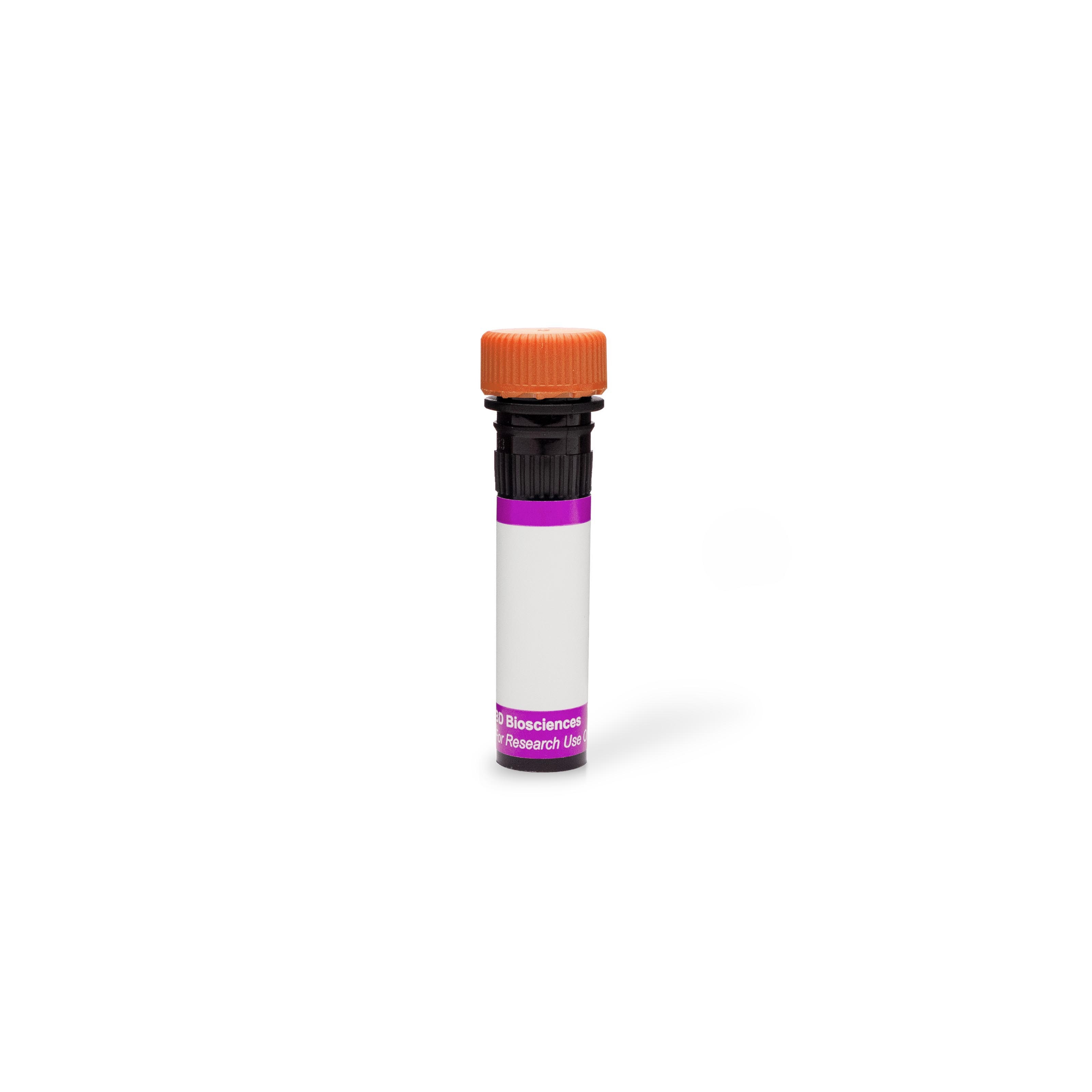-
Your selected country is
Middle East / Africa
- Change country/language
Old Browser
This page has been recently translated and is available in French now.
Looks like you're visiting us from {countryName}.
Would you like to stay on the current country site or be switched to your country?


Regulatory Status Legend
Any use of products other than the permitted use without the express written authorization of Becton, Dickinson and Company is strictly prohibited.
Preparation And Storage
Recommended Assay Procedures
For optimal and reproducible results, BD Horizon Brilliant Stain Buffer should be used anytime two or more BD Horizon Brilliant dyes (including BD OptiBuild Brilliant reagents) are used in the same experiment. Fluorescent dye interactions may cause staining artifacts which may affect data interpretation. The BD Horizon Brilliant Stain Buffer was designed to minimize these interactions. More information can be found in the Technical Data Sheet of the BD Horizon Brilliant Stain Buffer (Cat. No. 563794).
Product Notices
- This antibody was developed for use in flow cytometry.
- The production process underwent stringent testing and validation to assure that it generates a high-quality conjugate with consistent performance and specific binding activity. However, verification testing has not been performed on all conjugate lots.
- Researchers should determine the optimal concentration of this reagent for their individual applications.
- An isotype control should be used at the same concentration as the antibody of interest.
- Caution: Sodium azide yields highly toxic hydrazoic acid under acidic conditions. Dilute azide compounds in running water before discarding to avoid accumulation of potentially explosive deposits in plumbing.
- For fluorochrome spectra and suitable instrument settings, please refer to our Multicolor Flow Cytometry web page at www.bdbiosciences.com/colors.
- Please refer to www.bdbiosciences.com/us/s/resources for technical protocols.
- BD Horizon Brilliant Stain Buffer is covered by one or more of the following US patents: 8,110,673; 8,158,444; 8,575,303; 8,354,239.
- BD Horizon Brilliant Violet 605 is covered by one or more of the following US patents: 8,110,673; 8,158,444; 8,227,187; 8,455,613; 8,575,303; 8,354,239.
Companion Products






The 344823 monoclonal antibody specifically recognizes CD366, which is also known as T cell immunoglobulin mucin 3 (TIM-3), or T-cell immunoglobulin and mucin domain-containing protein 3 (TIMD-3/TIMD3). CD366 (TIM-3) is a ~60 kDa type I transmembrane glycoprotein that is encoded by HAVCR2 (Hepatitis A virus cellular receptor 2) and belongs to the human TIM family (along with TIM-1 and TIM-4) within the Ig superfamily. CD366 (TIM-3) has one Ig-like V-type domain and a mucin stalk region which is rich in serine and threonine. It is expressed on type-1 (Th1-like) CD4+ T cells and CD8+ T cells, type-17 (Th17-like) CD4+ T cells, regulatory T cells (Treg), NKT, and NK cells. It is also expressed on dendritic cells, mast cells, monocytes, macrophages, and microglia but not on B cells or type-2 (Th2-like) CD4+ T cells. CD366 (TIM-3) can regulate macrophage activation and suppress type-1 and type-17 T cell functions. Crosslinking of cell surface CD366 (TIM-3) by binding to Galectin-9 and/or phosphatidylserine can either positively or negatively regulate leucocyte functions, such as cytokine production or the phagocytosis of apoptotic cells. Through its suppressive activity, CD366 (TIM-3) helps maintain peripheral immune tolerance and homeostasis, but can also inhibit anti-tumor immunity.
This antibody is conjugated to BD Horizon™ BV605 which is part of the BD Horizon Brilliant™ Violet family of dyes. With an Ex Max of 407-nm and Em Max of 602-nm, BD Horizon BV605 can be excited by a violet laser and detected with a standard 610/20-nm filter set. BD Horizon BV605 is a tandem fluorochrome of BD Horizon BV421 and an acceptor dye with an Em max at 605-nm. Due to the excitation of the acceptor dye by the green (532 nm) and yellow-green (561 nm) lasers, there will be significant spillover into the PE and BD Horizon PE-CF594 detectors off the green or yellow-green lasers. BD Horizon BV605 conjugates are very bright, often exhibiting brightness equivalent to PE conjugates and can be used as a third color off of the violet laser.

Development References (4)
-
Cherkassky L, Morello A, Villena-Vargas J, et al. Human CAR T cells with cell-intrinsic PD-1 checkpoint blockade resist tumor-mediated inhibition.. J Clin Invest. 2016; 126(8):3130-44. (Clone-specific: Flow cytometry). View Reference
-
Monney L1, Sabatos CA, Gaglia JL, et al. Th1-specific cell surface protein Tim-3 regulates macrophage activation and severity of an autoimmune disease.. Nature. 2002; 415(6871):536-541. (Biology). View Reference
-
Mujib S, Jones RB, Lo C, et al. Antigen-independent induction of Tim-3 expression on human T cells by the common γ-chain cytokines IL-2, IL-7, IL-15, and IL-21 is associated with proliferation and is dependent on the phosphoinositide 3-kinase pathway.. J Immunol. 2012; 188(8):3745-56. (Clone-specific: Flow cytometry). View Reference
-
Ndhlovu LC, Lopez-Verges S, Barbour JD, et al. Tim-3 marks human natural killer cell maturation and suppresses cell-mediated cytotoxicity. Blood. 2012; 119(16):3734-3743. (Clone-specific: Functional assay). View Reference
Please refer to Support Documents for Quality Certificates
Global - Refer to manufacturer's instructions for use and related User Manuals and Technical data sheets before using this products as described
Comparisons, where applicable, are made against older BD Technology, manual methods or are general performance claims. Comparisons are not made against non-BD technologies, unless otherwise noted.
For Research Use Only. Not for use in diagnostic or therapeutic procedures.
Report a Site Issue
This form is intended to help us improve our website experience. For other support, please visit our Contact Us page.